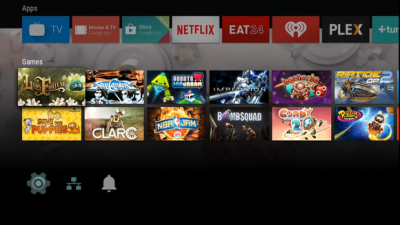In this age of digitalization filled with smart-enabled everything, mobile gaming is fast-becoming the new favorite form of entertainment. The video gaming business is expected to become a $100 billion industry by 2017 thanks to the boom in mobile games and their mass-market appeal. This rise in the modernized form of entertainment is influencing more traditional mediums of television and film and consumers will experience increased integration between all three.
A Shift in Entertainment
Mobile applications have made free or extremely low-cost entertainment an option for consumers as well as tapped into audiences never before reached. When comparing the viewership numbers between popular television shows such as Breaking Bad which garnered 10.3 million viewers for its series finale and viral mobile games like Candy Crush Saga, a game that’s played by 40 million people a month, it’s fair to hypothesize there is something about mobile gaming that simply allows for a greater amount of people to participate. Overall, it costs less money to partake in mobile gaming compared to going to the movies or paying for pricey cable services. Furthermore, the advancement in connected technology enables and supports this attraction towards mobile applications. The sharpest, smoothest image streaming and sound effects can now be produced with powerful graphic processing units pioneered by the latest mobile technology from Snapdragon. It has moved former gamers from old-school game console to new-age mobile device and extends into the broader mobile user demographic.
The Integration
Television, film and gaming are collaborating in various ways due to the great potential mobile games have posed. Advertising strategy is revolving for both how game publishers are marketing and how brands are marketing within game applications. Three major mobile game brands, Game of Wars, Heroes Charge and Clash of Clans, ran commercials during this year’s Super Bowl — a move that helped shed their formerly exclusive gamer reputation to enter the mainstream world. Mobile game applications also present an effective avenue for advertisers to promote their brand in front of an audience that is highly invested, engaged and ready to spend. Television and film certainly won’t die off because of this strong emergence in mobile game presence but instead they will join forces and have already begun to do so with the production of games that translate from movie to mobile application. For instance, the popular movie franchise Fast and Furious has a corresponding game that has collected more than 33 million downloads in app stores.
The Push to Develop
Technology is evolving to house television, film and gaming in one device thus changing the viewer experience with visually based entertainment. Aside from application-run tablets and smartphones, products like Apple TV and Roku, systems that hold apps including YouTube, Netflix and network channels like Showtime Anytime and HBO GO under the same roof, have been invented and ultimately technology could develop to assimilate all three forms of entertainment (gaming, television and film) into the same category. Google is expected to put out its own Android TV which runs on an open-source operating system where users not only are able to watch TV but also play mobile game applications with dedicated remotes and game controllers. Internet-connected devices and the rise in smart technology has given way for mobile applications, games especially, to make an impact on traditional platforms and pushed the development and integration for cross-platform entertainment.
This is just the beginning. Mobile gaming’s wide range appeal to the greater population is pushing ongoing support in and investment in the market. Strategic marketing and technological integration with the film and television industries have already taken place in order to keep up. With the continual strong growth of mobile gaming, the future of entertainment is currently being shaped around it and will be filled with more fun and games to come.
